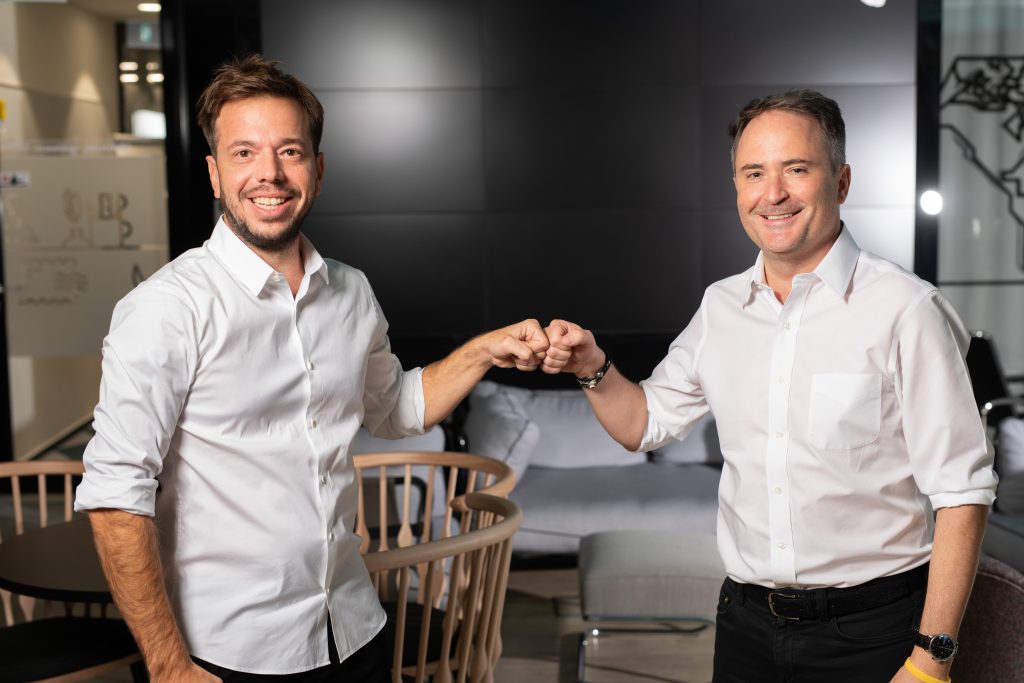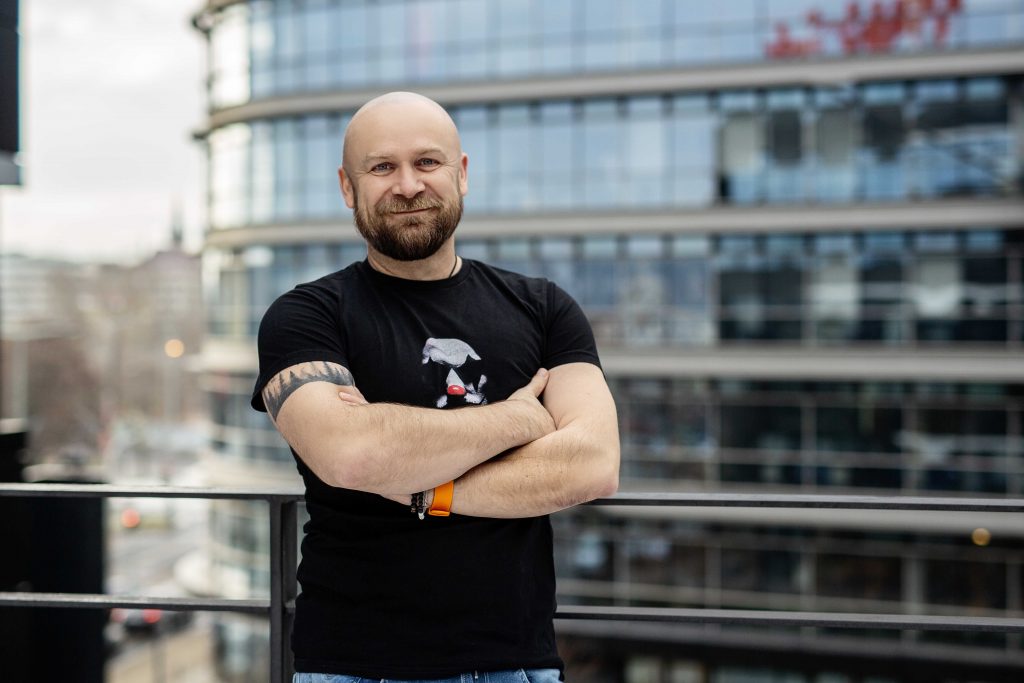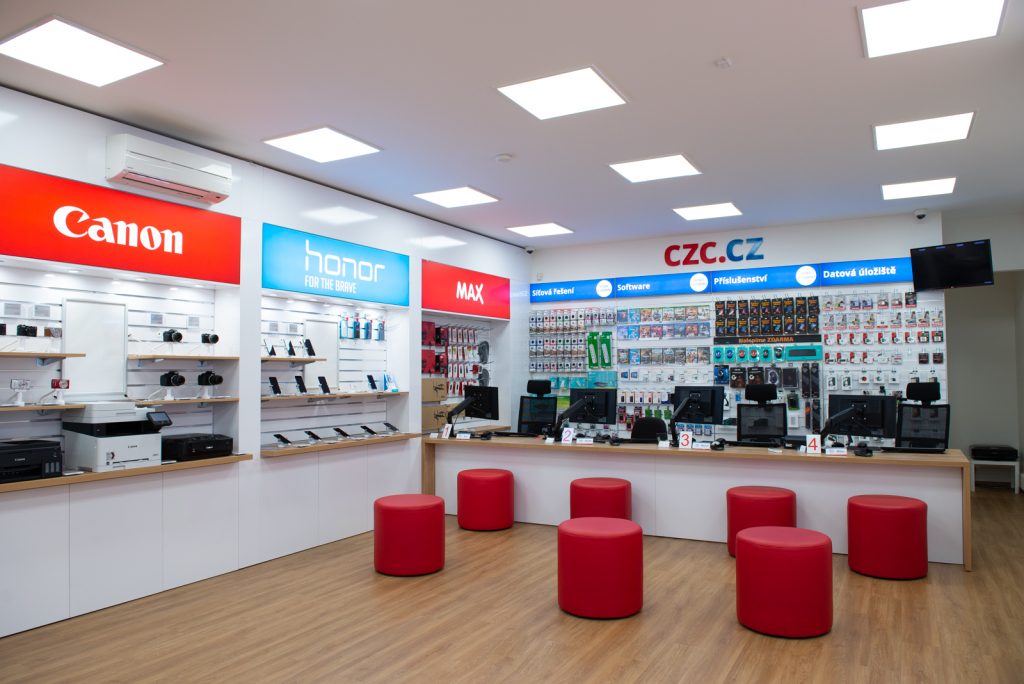All newsAdam Kolesa: Consulting taught me one thing that is very valuable
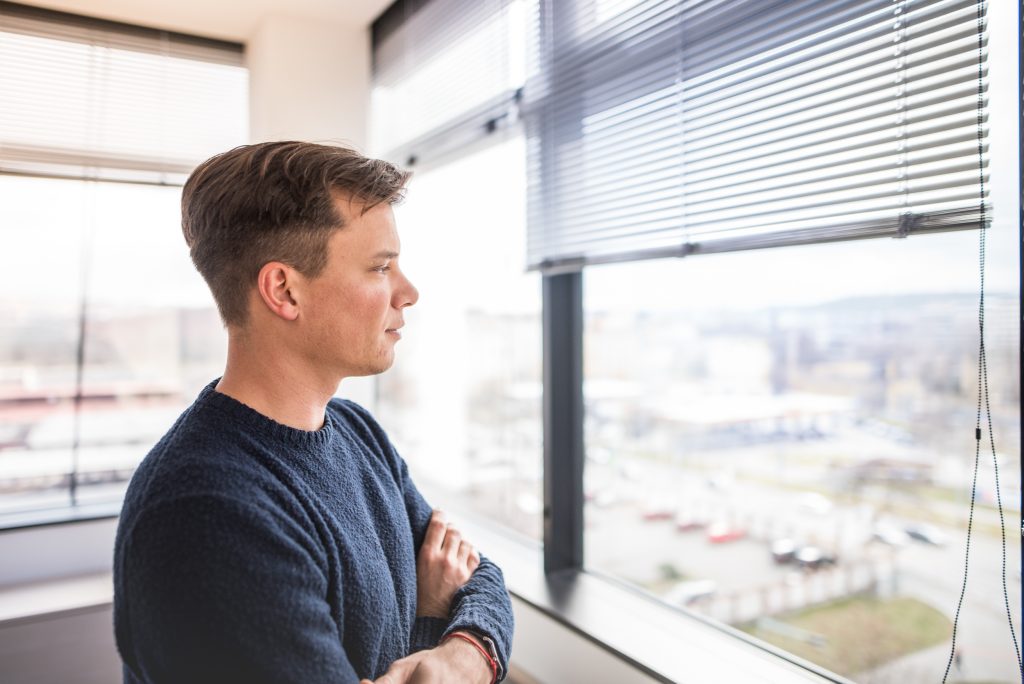
Adam Kolesa joined McKinsey as a consultant right out of school. When he went back to school three years later to earn his MBA, he had time to look back at his life. He was missing continuity and he said to himself that he wanted to start building something for the long term. Therefore, he is now at Rockaway, where among other things he is currently preparing a programme involving summer internships for students. But why start out talking about work? I found out from Adam that he had nearly lost his life while mountain climbing. So, let’s begin with that…
I KNOW THAT YOU ENJOY CLIMBING MOUNTAINS. HAVE YOU EVER COME CLOSE TO LOSING YOUR LIFE WHILE DOING THAT?
Yeah, it got pretty hairy a couple of times. The first time was in the south of Switzerland, not far from Zermatt. We went out for the first time without a guide and it suddenly got foggy. Then the wind came up and it started to snow, so after ten metres you couldn’t see your tracks. When you walk down into the wrong valley, you’re in hell, because you don’t have signal, it’s going to be hard for you to find your way back and it might happen that you have to spend the night there.
HOLD ON, LET ME GET THIS STRAIGHT… YOU CLIMB WITHOUT PROTECTION?
Protection slows you down a lot. We only had crampons and ice axes, because it takes a long time to dig out anchors in deep snow.
WERE YOU AFRAID?
Well, yeah. You suddenly realise that you’re defenceless. You don’t have anyone to call and no one is coming to get you. You’re simply alone; it’s just you and this enormous mountain.
YOU SAY THAT WITH ICY CALM. I SUPPOSE YOU KEPT YOUR COOL.
We pressed up against the rock as tightly as possible and an avalanche flew over our heads. Luckily, it wasn’t strong enough to tear us away. At that moment, you have to turn downward as quickly as possible. You have no idea if another one is coming the next minute. Fortunately, we were able to climb down and everything turned out okay. At the bottom, I said to myself that I never want to experience that again.
WHAT DO YOU ENJOY ABOUT CLIMBING?
Besides climbing itself and the beautiful scenery, it completely clears your head. You don’t think about work, no one calls you, no Facebook. You’re simply unavailable. You concern yourself with only three things – the route, food and sleep. On the other hand, it has its disadvantages. When it starts to snow a lot, you spend maybe three days in a four-square-metre tent. Sometimes, you might knock the snow off the roof, but otherwise you just lie around, read, play cards or talk about life. What I want to say is that I do it because of the crew. When you’re climbing, you have to have a really good crew. Otherwise, you can’t do it.
AND WHAT IS THE HARDEST PART?
One thing is immediately clear. Mountains are completely unforgiving. You must plan your route perfectly, approach it with respect and be thoroughly focused on what you’re doing. At the same time, you have to realise that climbing can’t be the centre of everything. Because when you become too motivated and you want to do it at all costs, you end up taking terrible chances. Climbing up the hill isn’t success. Rather, success is in getting back.
BACK IN THE CZECH REPUBLIC
What did you do before you joined Rockaway?
Consulting.
I never know what that involves exactly.
We did management consulting. An example of a project is that a firm needs a strategy for the next three to five years. And you tell then, for instance, which markets they should be in, what they should sell there and through which channels, and what the financial impact of that will be. In consulting, there is no such thing as a typical project. Every study is completely different.
So, you go into a firm, make a plan and then you don’t worry about what happens with it later?
Simply said, yes. You come in, work out the problem in detail, propose a solution and the next month you deal with something else. But that’s already changing and consultants are focusing more and more on implementing their own proposals.
How long did you do that?
Five years. I got into consulting right out of school.
Did the time pass quickly?
Brutally fast. After a few years, I went to study for my MBA. Fortunately, I stopped that and got my priorities straight. It came at the right time.
Did you learn anything when you stopped?
I realised that I was tired and that that doesn’t work over the long term. Up to that point, I had travelled my whole life, so I finally decided to come back to the Czech Republic. I want to spend more time with my family and friends, focus on my hobbies and relax a bit. Mainly, I wanted to start building something more long term that I could directly influence. That motivates me a lot.

You came to Rockaway at the time when it had taken over Mall. What are you responsible for here?
We’re building a team that will help the firms in the portfolio to define their business strategy. For me, that is such a transition between consulting and being in only one company. I suddenly see not only what I’m proposing, but mainly how it works through all the obstacles and how hard it is to bring a proposal into reality. That is a new experience for me.
Was there anything that surprised you after you came to Rockaway?
I was surprised by the “start-up” environment – it is more chaotic and unstructured than I had expected. I came from an environment where everything had its set of rules. On the other hand, it is admirable what the guys managed to build up in such a short time.
Do you have any past projects in which you tried out cooperation with the new team?
Of course. One of the things that I did in autumn was drones. I very much enjoyed that. You can really understand from that what part of my work involves. At one meeting, Jakub said why Amazon can test drone delivery and no one had tried it here yet. It didn’t have a typical owner, so I took responsibility for it. We had to put a lot of things together – logistics, website functionalities, technical matters, marketing. We did a great job and became the first to test actual order delivery by drone.
ROCKAWAY ACADEMY
I recently read that you are launching Rockaway Academy and you are in charge of it. What will that involve?
I got the responsibility for that because I’d had several internships abroad myself. When they don’t station you at the copy machine, it really is a great experience. This year we want to open Rockaway up to young people, get to know them better and enable them to find out for themselves what it means to work in an internet firm – and it definitely won’t involve making copies and brewing coffee.
Why would I want to go to Rockaway Academy?
Good question. In my opinion, mainly for the experience that you will gain here. After two months, you’ll have an idea about whether this kind of work is for you or not. And you can use the experience you get here anywhere else. And, finally, the most import thing – you will work with great people, so it’s a win-win.
How many people do you plan to bring in?
This is the pilot programme, so we’ll take two or three people at the beginning. We want to fully focus on them and to be sure that they get something from the internship. We’re putting a lot of energy into to, so maybe it will be worth it. I believe that it will.
Information about Rockaway Academy is available here.
GIVE IT STRUCTURE
Now I have a more serious question. What do you think you’re good at?
Consulting taught me one important thing that became very valuable later. Regardless of what kind of problem I’m dealing with, I can break it down into individual parts and find the solution. Also, I’m able to do that very quickly; I don’t need to spend a lot of time theorising about it. I think that Jakub and I complement each other well – he has high-level ideas and I can give them structure and plan them out. I figure out what has to happen so that we can bring it to life and then with the help of various people bring it into reality.
Where do people most often make mistakes in project management?
They most often make mistakes in setting goals. It’s a mistake if I don’t say what actually makes something a success and what is included in that. It’s necessary to divide a project into several small parts and a brief time period. If you set an unclear goal and a long time period, the team’s motivation and energy will rapidly deteriorate. Mainly, after some time, nobody knows what the project is for or who is working on it.
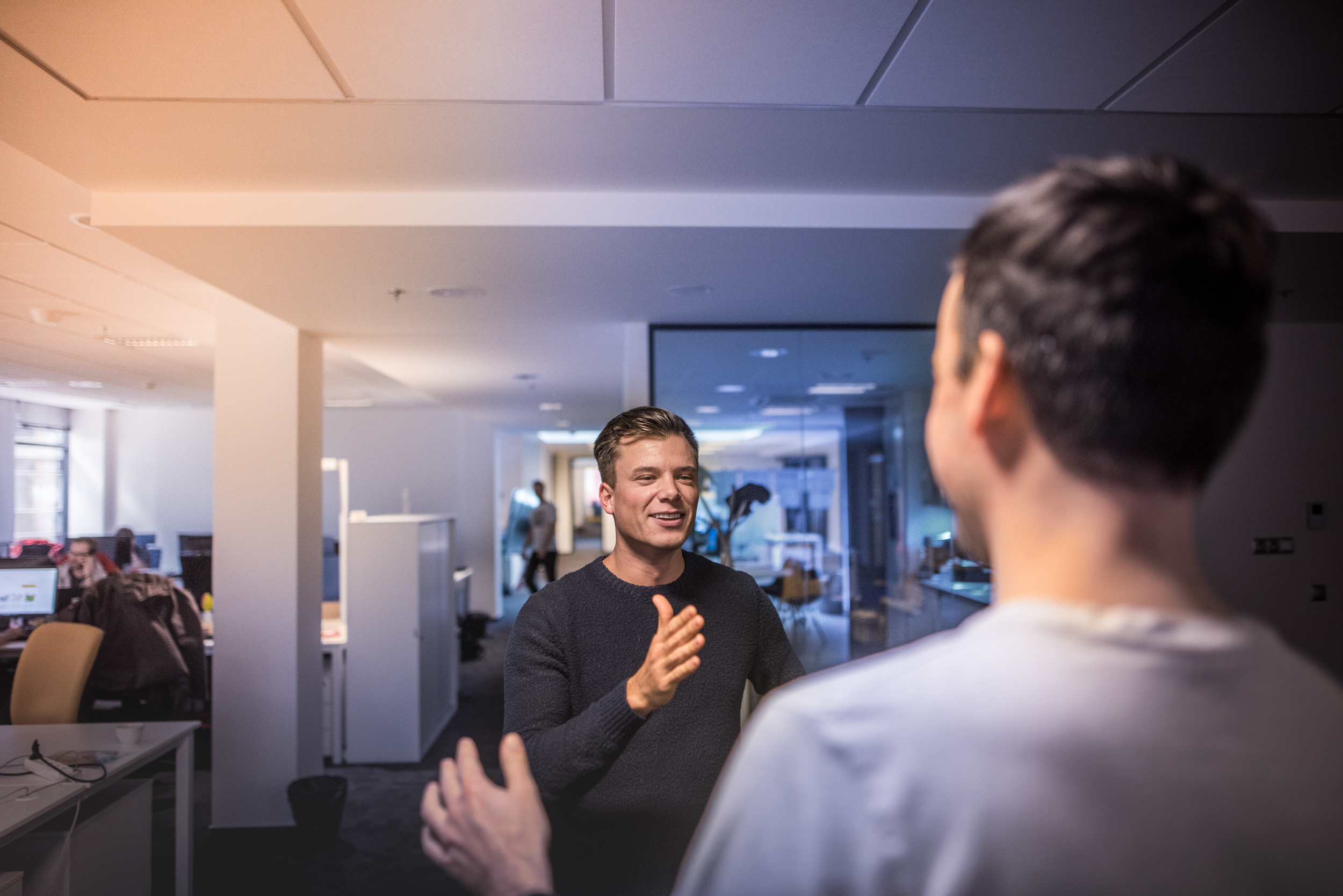
That doesn’t sound like rocket science.
It’s not a science. It has a lot to do with discipline.
When you look back on your career…
Hey, I’m not that old. I’m just a bit past thirty…
Fair enough. When you look at your professional experience to date, what “aha moments” come to mind?
That’s a good question. A little philosophical, which unnerves me a bit, because I really need to have everything thought out in advance and structured…
No worries, take your time…
I guess I’d put it all together in one thing, which is long-term sustainability. I can always do more things at work and spend endless time there. I think that I know how to figure out where I can still add value and where not. It’s the Pareto Principle – focus on the important 20% and thus solve 80% of the problem. That’s how you look out for the balance between your professional life and your personal life. Otherwise, you deal with unimportant things when you could be relaxing and you’ll burn out sooner or later. That sounds banal, but it’s easy to forget it over the course of the day.
How do you keep an eye on that through the day?
I exaggerate that in the extreme and I usually ask myself: what will happen if I don’t do this? That has helped me when I’ve given presentations for the top management of major firms. If I botch this, what will happen? The worst thing that can happen is that I will lose my job. There’s a 90% chance that it won’t happen and if it does, I’ll find another job. What worse can happen? You see? Nothing will happen! I was relieved by that and I stopped stressing out.
Does anything else occur to you?
This is really quite a workout! One more thing. At the end of the day, it’s not really important what I do, but who I do it with. To do something great but with a bad team around you…I wouldn’t be able to do that. So I’d rather do something that’s less interesting, but with good people.



